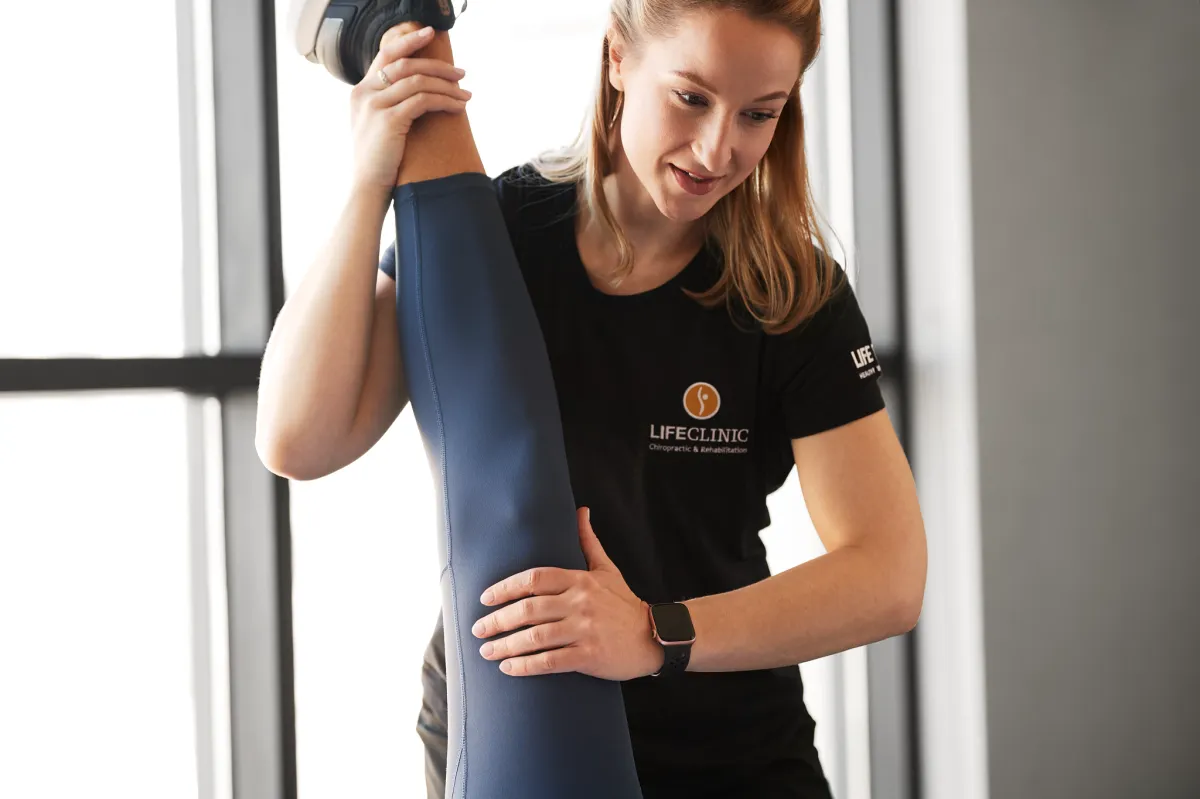Revolutionize Your Recovery
Experience chiropractic and rehabilitation like never before with our cutting edge integrative approach, & experts doctors.
Find A Location
LifeClinic addresses your pain symptoms so you’ll feel more empowered to move and do the things you love. Our holistic approach to treatment goes beyond treating your pain— we’ll help restore, maintain, and optimize your body’s overall function. To top that off, our state-of-the-art facilities are equipped with treadmills, squat racks, and weights to help you reach your fitness and mobility goals faster. Get started on your journey to recovery and visit a LifeClinic location near you.

What To Expect

Examination
During your 1st visit, our providers will hear the story of what brings you in, perform a new patient examination to determine the root cause of your problem, and briefly summarize what was found. The examination consists of motion tests, palpation, reflex testing, and muscle strength, to help identify dysfunction in movement patterns and poor muscle engagement.

Report of Findings
During your second visit, your provider will recap what was found in the examination, discuss a solution, review what your personal contribution to care will be, and begin treatment on that day.

Daily Appointments
On each subsequent visit, our providers will perform routine assessments to ensure you are track with your treatment plan and provide treatment.
Blog
Stay on the right path toward health, wellness and injury prevention. Our blog covers everything related to pain management, arthritis, fibromyalgia, migraines, and other musculoskeletal conditions. After all, being in the know is essential to maintaining your overall well-being.


